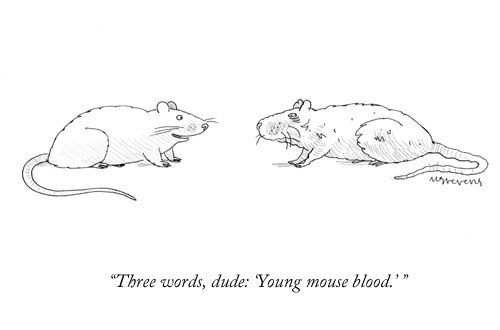
Breaking News
 Christmas Truce of 1914, World War I - For Sharing, For Peace
Christmas Truce of 1914, World War I - For Sharing, For Peace
 The Roots of Collectivist Thinking
The Roots of Collectivist Thinking
 What Would Happen if a Major Bank Collapsed Tomorrow?
What Would Happen if a Major Bank Collapsed Tomorrow?
Top Tech News
 EngineAI T800: Born to Disrupt! #EngineAI #robotics #newtechnology #newproduct
EngineAI T800: Born to Disrupt! #EngineAI #robotics #newtechnology #newproduct
 This Silicon Anode Breakthrough Could Mark A Turning Point For EV Batteries [Update]
This Silicon Anode Breakthrough Could Mark A Turning Point For EV Batteries [Update]
 Travel gadget promises to dry and iron your clothes – totally hands-free
Travel gadget promises to dry and iron your clothes – totally hands-free
 Perfect Aircrete, Kitchen Ingredients.
Perfect Aircrete, Kitchen Ingredients.
 Futuristic pixel-raising display lets you feel what's onscreen
Futuristic pixel-raising display lets you feel what's onscreen
 Cutting-Edge Facility Generates Pure Water and Hydrogen Fuel from Seawater for Mere Pennies
Cutting-Edge Facility Generates Pure Water and Hydrogen Fuel from Seawater for Mere Pennies
 This tiny dev board is packed with features for ambitious makers
This tiny dev board is packed with features for ambitious makers
 Scientists Discover Gel to Regrow Tooth Enamel
Scientists Discover Gel to Regrow Tooth Enamel
 Vitamin C and Dandelion Root Killing Cancer Cells -- as Former CDC Director Calls for COVID-19...
Vitamin C and Dandelion Root Killing Cancer Cells -- as Former CDC Director Calls for COVID-19...
 Galactic Brain: US firm plans space-based data centers, power grid to challenge China
Galactic Brain: US firm plans space-based data centers, power grid to challenge China
Blood plasma infusions from young donors improves functional ability for Alzheimers

There were also some signs suggesting improvements in participants' conditions.
Above – Sharon Sha presented findings Nov. 4 from a small clinical trial that found administering blood plasma from young donors to people with mild to moderate Alzheimer's disease was safe. Paul Sakuma
Finding of safety wasn't surprising, given that blood-plasma infusions have long been in widespread use for other indications and are considered extremely safe. More surprising, she said, were hints of recipients' improvement on tests of functional ability: the capacity to perform basic tasks essential to independent daily life, such as remembering to take medications and being able to pay bills and prepare one's own meals.
The PLASMA trial was designed to test a hypothesis advanced by Tony Wyss-Coray, PhD, Stanford professor of neurology and neurological sciences and a senior research career scientist at the Veterans Affairs Palo Alto Health Care System, whose research has shown that factors in the blood of young mice can rejuvenate the brain tissue and improve cognitive performance in old mice.

 The State's Last Stand
The State's Last Stand


